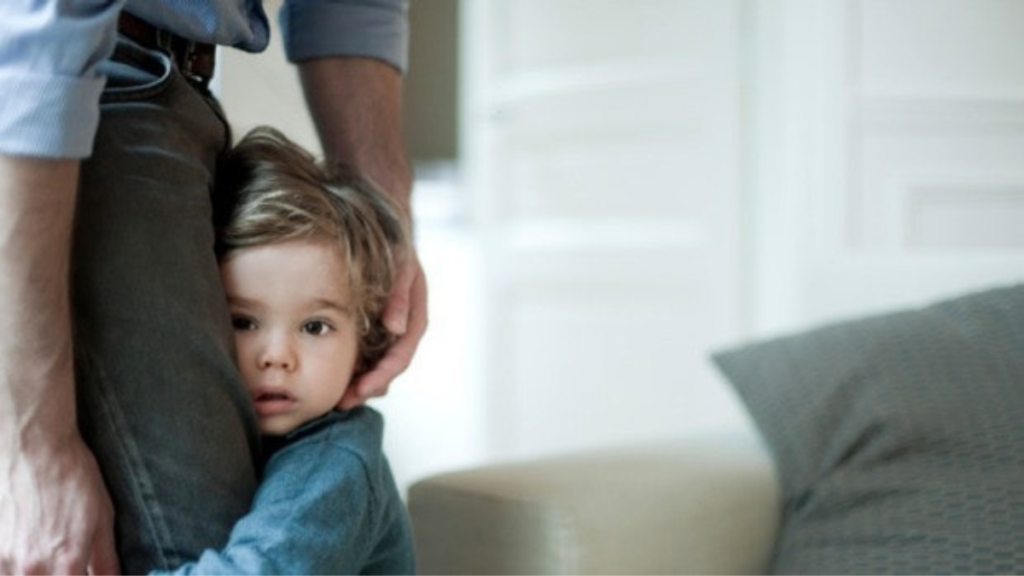
Loud crying, forceful clinging and parental tears after daycare and preschool drop off, does this sound familiar? I’ve definitely been there! Separation anxiety is something that can have an effect on babies, families and kids of all ages. A lot of parents struggle with this especially if they work out of the home and are leaving their children with other caregivers while they are away.
Separation anxiety can start to develop as early as 4-5 months of age once your baby develops an understanding of object permanence. Developing object permanence is the ability for your baby to know that something still exists even if it’s not seen. For your baby this especially solidifies around 9 months of age and some parents will start to see separation anxiety heighten around 15-18 months of age rather than in infancy. Around 15-18 months of age is when our children are starting to develop independence and they are much more aware of the separation from their parents. It is during these ages too where drop-offs can be especially difficult if your baby or child is hungry, tired or not feeling well.
So what can we as parents do to help ease our children through this transition? Believe it or not, sneaking away is not the answer! So here is my top tips to manage separation anxiety in babies and kids of all ages:
1. Be consistent and develop a “good-bye ritual”. For example, a ritual I started with my little one is a quick kiss, a hug, and I leave him his special blanket. I’m consistent and I do this every time I leave him with another caregiver. This helps your child to develop trust in the process.
2. Keep the drop off quick, be confident and try not to linger. If the duration of the drop off is prolonged due to hesitation, your child will sense your hesitancy and this will prolong the duration and time it takes for your child to transition after separating from you.
3. Be specific and keep your promise. This will also help build trust, confidence and independence in your child’s ability to be without you for a period of time by sticking to your word. For example, make it a part of your “good-bye ritual” to say something like “Mommy will be back shortly after you wake up from your afternoon nap”. Our children understand more than we give them credit for and this is something you can start doing with your child from an early age and continue with your school age child during drop-off’s to ease anxiety from separation.
4. Give your child a chance to prepare for longer separations from you by practicing being apart for short periods of time. Let friends and family care for your child, and schedule playdates prior to starting daycare or preschool. Even if only for an hour, it gives you a chance to solidify your “good-bye ritual” with your child and they can start the confidence and trust building early on!
These times and transitions can be hard, separation anxiety can be something that is not only hard on your child but on you! The fact that you are reading this and gaining insight into how to manage separation anxiety with your child shows that you’re doing an amazing job! Keep it up and know that we’re here to help and support you every step of the way!
© 2023 All rights reserved Baby & Toddler - part of parent promotions